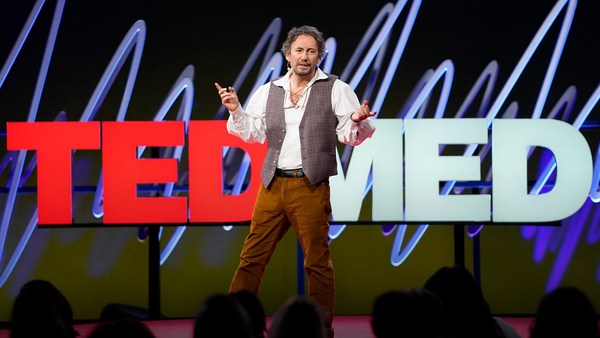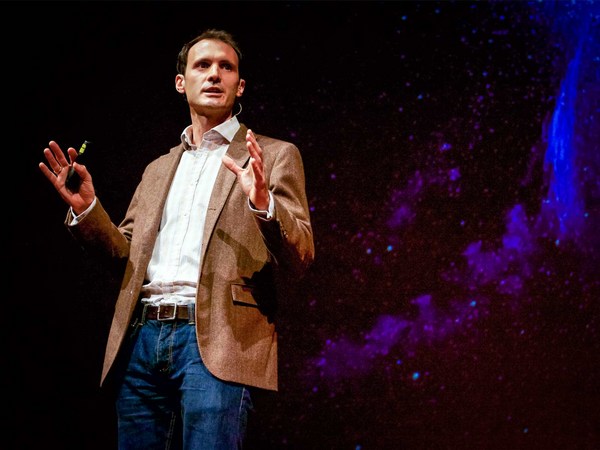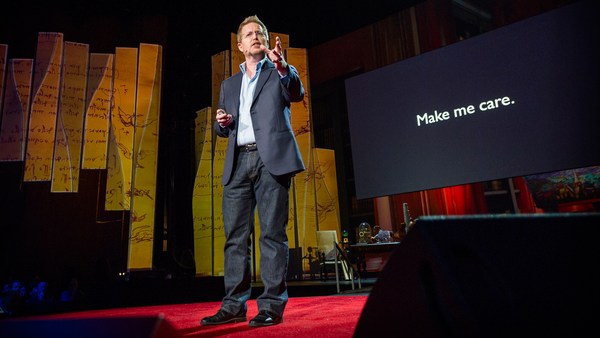Fifteen years ago, I was doing my graduate research on the lynching of Mexicans and Latin Americans in gold rush California. And I was having a very hard time finding the evidence I needed to make my claim. I don't know how much you know about lynching, but they are, by definition, public executions that happen off the official record. These deaths aren't technically sanctioned by the state, and often, towns and communities would deny they even happened, which made it harder to prove that they did. Still, even when the official record refused an act of violence, local lore often served as an alternative archive, a different way of recording history. A ghost story about someone being killed and coming back to haunt the town was an important arrow, a sign to look more deeply into the history of a place. Very often, if local legend featured a story about a ghost who had been hung, murdered or lynched, and came back to haunt the town, digging through the archive, newspapers, letters, diaries, would reveal that the event, or something like it, had actually happened. So the ghost story was one way that communities were holding the violent history of a place, passing down the story from generation to generation.
Now, I don't know if an actual ghost was haunting any of these places, but their history certainly was. And this is pretty much my stance on it. It doesn't matter whether or not a ghost is real. The ghost story is, and the fact that we maybe, kind of, sort of believe a ghost might be real is significant, and we should pay attention to it.
I'm not the only one who thinks this, by the way. There is a whole field of interdisciplinary research called “spectrality studies,” which is proof that academics will think of anything. Still, this idea was transformative for me, and not just in my research.
For most of my life, I was terrified of ghosts. I didn’t even want to hear a ghost story, because I didn't want to entertain the possibility that a ghost might exist. And why not? In popular culture, ghosts are portrayed as mean, vengeful, destructive forces. They’re terrifying at worst and unsettling at best. Unexpected presences who show up and demand your emotional attention, at any cost. We are taught to be afraid of dying and death, and the dead.
But when I stopped worrying about ghosts and started worrying about ghost stories, I found myself in a new relationship with the world around me. In addition to being a historian, I'm also a performance maker, and about five years ago, I had the great honor of working with Free Street Theater in Chicago to create a performance called "100 Hauntings." To make this performance, we asked hundreds and hundreds of Chicagoans if they'd ever encountered a ghost. We were interested in what I call ordinary ghost stories, so, not the kinds of ghosts who show up in urban legends or on a city's ghost tour, but the kind of ghost people say they've just found in the bathroom, right after signing the lease on a new apartment. Following my research, we were interested in what these ghosts might tell us about Chicago's hidden history, but we were also interested in the ghost story as a form. Like no other kind of storytelling, ghost stories ask us to gather around, lean in and thrill at the possibility that some very scary, very chilling thing actually happened, while at the same time being sure, so sure, that it didn't, right? Right?
I have found that almost everyone has a ghost story. Even people who say they don't believe in ghosts usually have a "Well ..." story about something they're sure has a rational explanation, even if they're not quite sure what it is. And this not knowing has left them unsettled, with a feeling they can't quite explain.
And this is what I love about ghost stories -- how so often, they get right to feeling. Underneath the fun and chill of it are complex relationships with life, with death, and with each other.
And whenever anyone tells me a ghost story, I ask them two questions. First: "What do you think this ghost wanted?" And second, because most people are ambivalent about whether or not the ghost actually exists, I ask, "What is it that you want from the ghost?"
The first question is pretty easy to answer. I have found that most ghosts fall into one of three categories, and what they all want is pretty much the same -- to be acknowledged. The first type of ghost is the kind I started studying. These are the furious returned -- ghosts who have met a terrible end, and they want us, the living, to remember it. These are your victims of a great injustice. Murders, most often, but also things like factory fires and mysterious deaths in jail. I'll give you an example. Once, in a story circle for our show "100 Hauntings," a man told us a story about going as a teenager to break into an abandoned mental hospital on the northwest side of the city. Now, we’d never heard of this mental hospital, and honestly it sounded like any "teenagers breaking into a mental hospital" story you've ever heard -- a wheelchair mysteriously following them, doors slamming shut, creepy laughter. But remember, these kinds of stories can be important arrows, so we followed up. And sure enough, multiple city records show that there was a poor farm and almshouse on the northwest side of the city, which later became one of the largest carceral mental hospitals in the United States. It was the kind of place where people, mostly poor people and immigrants, were locked up for decades, often against their will. It was also the kind of place where, when they died, they were usually buried in the back, in an unmarked grave. The Chicago Tribune reports that as many as 38,000 unmarked graves are in the back. Now, this is a really significant piece of Chicago history, but I'd argue it's not well-known. Most people who live here don't know anything about it. But the ghost story asks us to remember.
The second kind of ghost story is probably the most common. We'll call them the leave-me-alone ghost. This is the kind of ghost who just wants us the living to get out. Usually, people experience this as bad energy or a creepy, unwelcome feeling in some parts of the house, and people usually imagine that this is a former resident who's not happy that new people have moved in. What's interesting to me about this kind of ghost story is that you find it most often in appropriated spaces -- think gentrifying neighborhoods or the old "built on a sacred burial ground" trope. And here's where I want to remind you that it doesn't matter whether or not the ghost is real. The ghost story is. So maybe there really is a ghost who’s trying to push us out, or maybe there’s some part of our unconscious that's grappling with whether or not we have a right to be here, whether or not we really belong. Sure, we live here now, but should we? What happened to the people who came before?
The third kind of ghost is my favorite. I'll call them "are still with us." These are your beloved grandparents, the child still playing with a ball up and down a hallway, the elevator operator still showing up to work. Sometimes, these ghosts are strangers to us. They're not people we used to know, but they're not bothering us or meaning us any harm -- they're just kind of there. I'll give you an example. Many people believe that the building where my theater is located is haunted. I've not experienced this myself, but I can't tell you how many people have described seeing exactly half a man sitting in our lobby. He doesn't interact with us or disturb us in any way. He's just there. Sometimes, though, these ghosts are more active. I've heard many stories from people who thought that their child had an imaginary friend until suddenly, their child knew how to play chess, or was singing songs in a totally different language. And here's where these stories get really emotional. Often, people are convinced that this is some family member returned, sent to watch over them. One woman told me a story about her husband coming to visit on a day when she was so sad, she didn't know what else to do but cry. Another woman told me she was sure that a faucet turning on and off in her bathroom was her sister, because it was so like the pranks her sister used to play when she was alive. I love these kinds of stories, because they show us how much we want to connect, not just with the living, but with the dead.
Asking people for their ghost stories can be bone-chilling fun, but it also gets at really intimate questions. How do we feel about death? What are we afraid of? Who did we love so much that we want them, desperately, to return? How do we want to be remembered? What do we wish we could change? What and who is haunting us?
Despite what horror movies and campfire tales would have us believe, most ghost stories reveal a deep longing: a longing for adventure, for meaning, for connection, for a beyond. A longing not to be forgotten, and a longing not to forget.
We're living in a time that feels exceptionally hard. We're divided from one another by politics, and the reality of a global pandemic means that many of us have been away from the people and places we love the most. So many of us are mourning untimely deaths, and grief is all around us. Unfortunately, I don't think we're always very good at grappling with loss or talking about death, or talking about the way that our history is still living in the present. Ghost stories can be scary, but so is being vulnerable, so is any unknown.
So the next time you're trying to figure out a way to connect and you’re not sure what to do, let me offer this. Try asking someone for a ghost story. It's sure to start a conversation. Yeah, maybe they'll laugh at you, maybe they'll turn it back on you. Maybe they'll tell you a story that makes the hair on the back of your neck stand on end. Maybe they'll tell you a story that makes you cry. And maybe, if you're really lucky, they'll tell you a story that makes you wonder what else you don't know, about a place, about a history, about a people, about each other and about yourself.
Don't forget to ask, "What did the ghost want? And more important, "What do you want from the ghost?"





